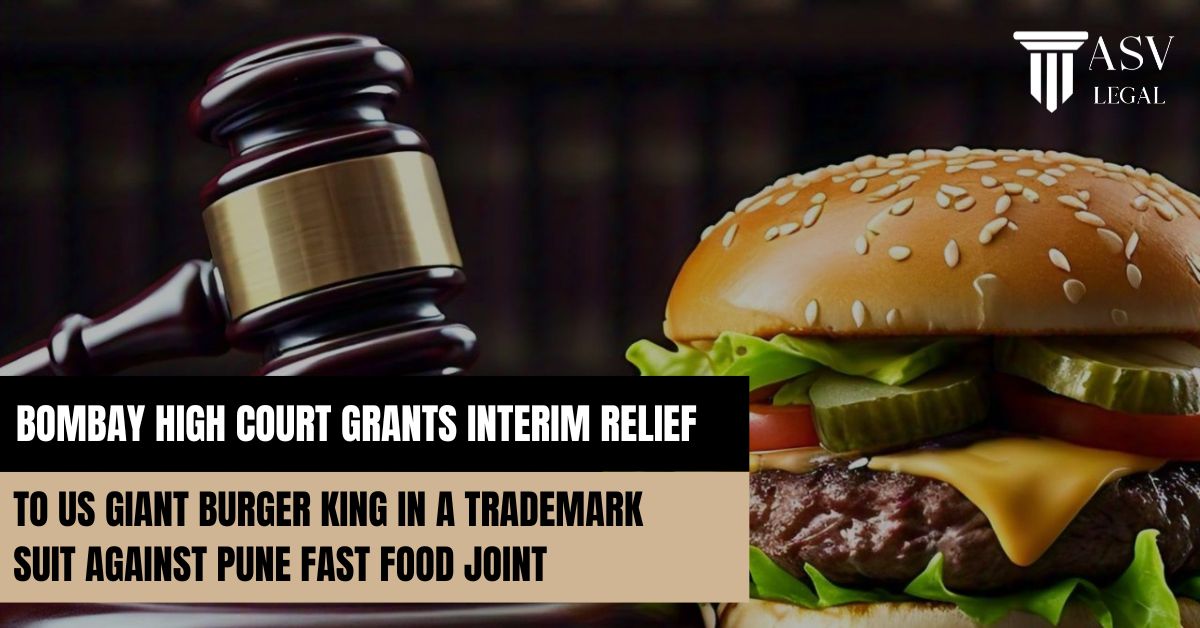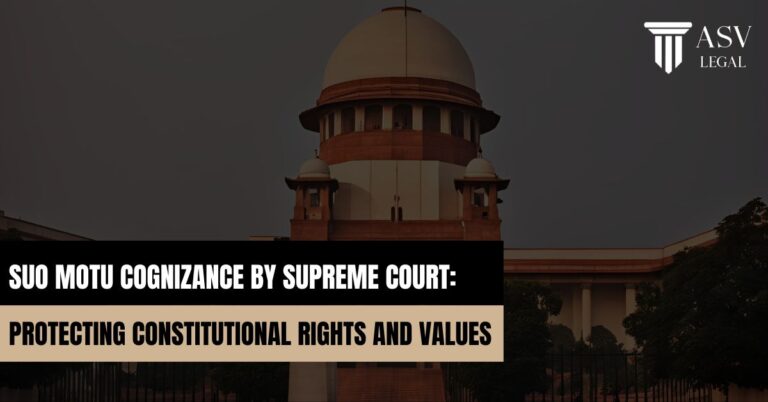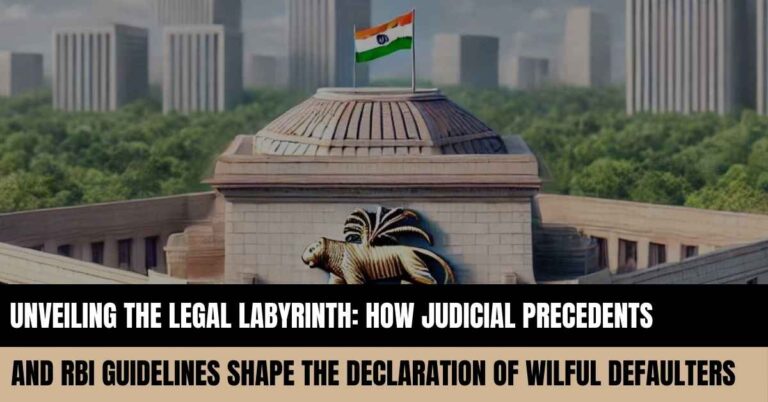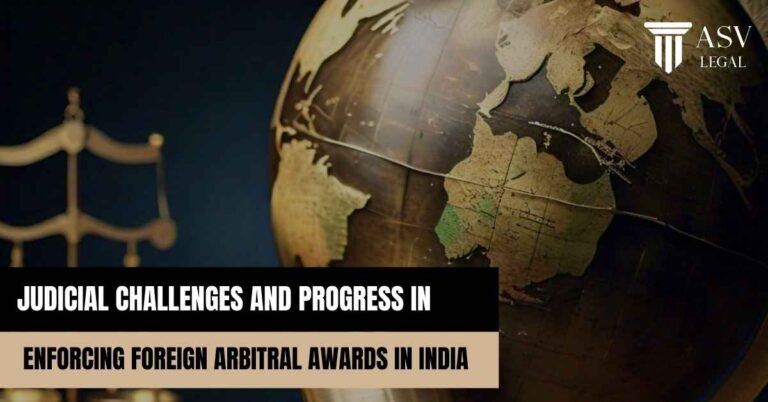Written By: Kamakshraj Singh
The Bombay High Court, vide its order dated 26.08.2024, restored the 2012 interim stay order of the Pune District Court (Lower Court), restraining the Pune Fast Food Joint from using the mark ‘Burger King’[1]. The Bombay High Court stated that the aforementioned interim order shall continue till 12th September 2024, wherein the parties will be heard.
Background of The Dispute Between the Global Giant and The Domestic Food Joint
Burger King Corporation, the Applicant Company before the Bombay High Court, is a globally recognized fast-food chain that has been using the trademark ‘Burger King’ since 1954 and registered it in India in 1979. The Corporation is incorporated in the State of Florida and operates over 15,000 restaurants in more than 122 countries, with its first Indian outlet launched in 2014 (Pune in 2015).[2]
On the other hand, the non-applicant, Pune Food Joint, has been using the ‘Burger King’ trademark since 1992, well before the entry of the Burger King Corporation in Indian markets. Upon discovering this, the Burger King Corporation sent a notice, of cease and desist, to the Food Joint in 2009, which was ignored by the Pune Food Joint, and consequently the Burger King Corporation filed a case in 2011 seeking permanent injunctions, damages, renunciation of accounts, and relief of delivery.
The Lower Court had, vide an order in 2012 had put an interim stay on the Pune Food Joint on using the trademark ‘Burger King’. However, the Lower Court vide its judgement dated 16th July 2024, in the favour of the Food Joint, held that the Food Joint had rightful use of the name long before the Burger King Corporation had entered the Indian market and hence, is entitled to use the trademark ‘Burger King’.[3] Aggrieved by this judgement, the Burger King Corporation filed an Interim Application before the Bombay High Court.
The Lower Court Refuses to Accept Foreign Registrations as ‘prior Use’ Under the Understanding of Domestic Laws
The Lower Court had to primarily deal with the question of the conflict between a Foreign Corporation’s registration in India vs the Prior Use of that particular corporation vis-à-vis the local entity. On the question of prior use, the court noted that Burger King Corporation had valid and registered trademarks for ‘Burger King’ in India dating back to 1979, covering various classes of goods and services. The Burger King Corporation had also established a significant global reputation and goodwill, with trademarks registered in over 100 countries. The court recognized that Burger King’s trademark had acquired distinctiveness over the years, making it a well-known mark globally, including in India.
However, according to the Lower Court, when considering the ‘Restaurant Services’, the Burger King Corporation has registered its trademark under class 42, dealing with Restaurant Services (after the enforcement of the new trademark rules), on 6th October 2006. Here, the Pune Food Joint was considered the prior users as they were registered under the same class since 1992, much prior to the registration of the Burger King Corporation, and hence no cause of action arises here as foreign registrations cannot be considered as an example of ‘use’ under the understanding of the Trade Marks Act 1999[4]. The court emphasized that trademark rights are territorial in nature.
With this, the Lower Court held that the Burger King Corporation had absolutely failed in proving that the Food Joint has infringed their rights. Due to the lack of evidence and dismissal of the counterclaims, the Burger King Corporation’s contention of restraining the Pune Food Joint to stop using the trademark of Burger King, along with the demand of compensatory damages of 20 lakhs, were rejected by the Lower Court.
Will the Bombay High Court Consider the Principle of Trans-Border Reputation?
The stance of the Lower Court on this issue was unambiguous as it completely backed the ‘Territory Argument’ in cases of trademark infringement. Even though, the Lower court acknowledged the Global Presence of the Burger King Corporation, and the brand value attached to its name, it was still very clear on the point of there being no trademark infringement due to Prior use by the Pune Food Joint in the Indian Territory.
Even though an Interim Order has been pronounced, the Bombay High Court was clear to point out that this Interim Order is not an indication of any prima-facie view taken by the court. What can come as a relief for the Burger King Corporation is, if the Bombay High Court treats this case as an example of a Trans-Border Reputation, wherein, the global recognition and reputation of a popular brand is considered as a factor in cases where the brand falls weak on the grounds of Prior Territorial Registration.
Even though the Indian Court have traditionally sought to protect domestic companies, there has been a recent change in India’s viewpoint on Trans-Border Reputation. A landmark Indian case in this regard has been N.R. Dongre v. Whirlpool[5], wherein the apex court upheld the decisions of the Single and Division Benches of the Delhi High Court, that, in spite of no registration of a trademark in India, whirlpool products were given protection due to a threat of their ‘Trans-Border’ reputation, if a local entity reaps the benefit misleading the customer mimicking the Foreign Corporation’s name. Similarly, in the case of Volvo of Sweden v. Volvo Steels[6], the Bombay High Court observed that, the ‘Volvo’ mark has a trans-border reputation in India based on several advertisements made and hence, the local entity must be restrained from using the mark.
[1] Burger King Corporation v. Anahita Irani & Anr. (IA/11936/2024)
[2] Ibid
[3] Burger King Corporation v. Anahita Irani & Anr, REG. CIVIL SUIT NO.-02/2011, CNR NO. MHPU010018472011
[4] The Trade Marks Act, 1999
[5] Civil Appeal 10703 of 1996
[6] 1998 (18) PTC 156




